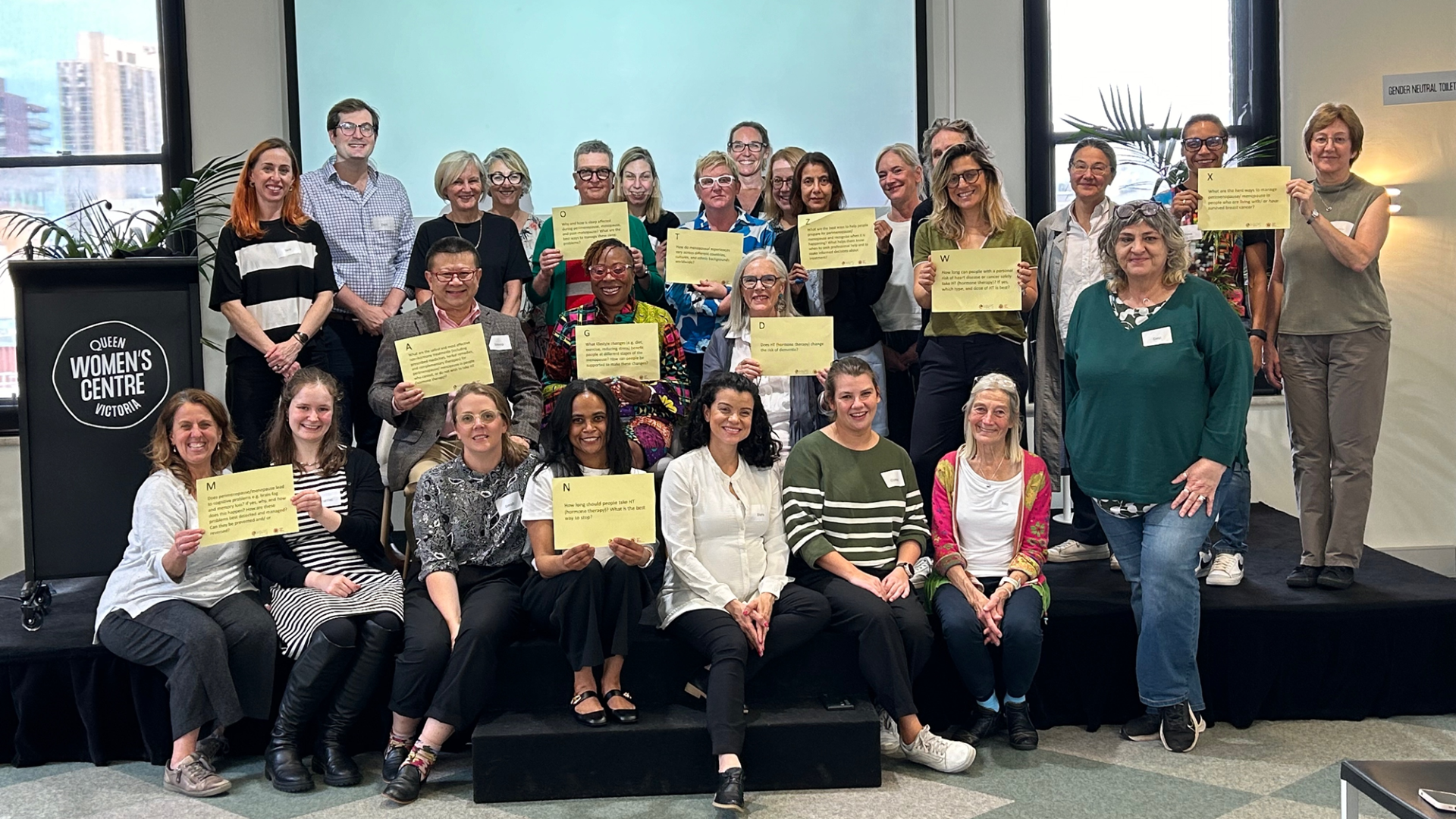The consensus workshop, held on October 18, 2024, in Melbourne, Australia, brought together individuals with lived experience of menopause and health care professionals. Together, they identified the Top 10 Menopause Priorities. Here's the list and a group photo.

| 1 | What are the safes and most effective non-hormone treatments (including prescribed medicines, herbal remedies, and complementary therapies) for perimenopause/menopause in people who cannot, or do not wish to take HT (hormone therapy)? |
| 2 | What lifestyle changes (e.g. diet, exercise, reducing stress) benefit people at different stages of the menopause? How can people be supported to make these changes? |
| 3 | Does perimenopause/menopause lead to cognitive problems e.g. brain fog and memory loss? If yes, why, and how does this happen? How are these problems best detected and managed? Can they be prevented and/or reversed? |
| 4 | Why and how is sleep affected during perimenopause, menopause, and post-menopause? What are the best ways to manage these sleep problems? |
| 5 | How long should take HT (hormone therapy)? What is the best way to stop? |
| 6 | What are the best ways to help people prepare for perimenopause/menopause and recognize when it is happening? What helps them know when to seek professional help and to make informed decisions about treatment? |
| 7 | How do menopausal experiences vary across different countries, cultures, and ethnic backgrounds worldwide? |
| 8 | What are the best ways to manage perimenopause/menopause in people who are living with/or have survived breast cancer? |
| 9 | Does HT (hormone therapy) change the risk of dementia? |
| 10 | How long can people with a personal risk of heart disease or cancer safely take HT (hormone therapy)? If yes, which type, and dose of HT is best? |
Do you want to shape the future of menopause research?
All people assigned female at birth will experience menopause, more than half the population.
With the average life expectance over 80 years many women live more than half their lives after menopause so prioritizing their health is critically important
Although, menopause is a normal life event, some will experience troublesome menopausal symptoms that may have a major impact on quality of life, professional and personal relationships, function, and work productivity.
For transgender and gender diverse men assigned female at birth, very little is known about the long-term health outcomes of hormone or surgery-induced menopause at a young age, or how hormone therapy should evolve as a person reached natural menopause.
Despite the ubiquitous nature of menopause and potential adverse impact on women, their work and our society, this area is relatively under-studied.




